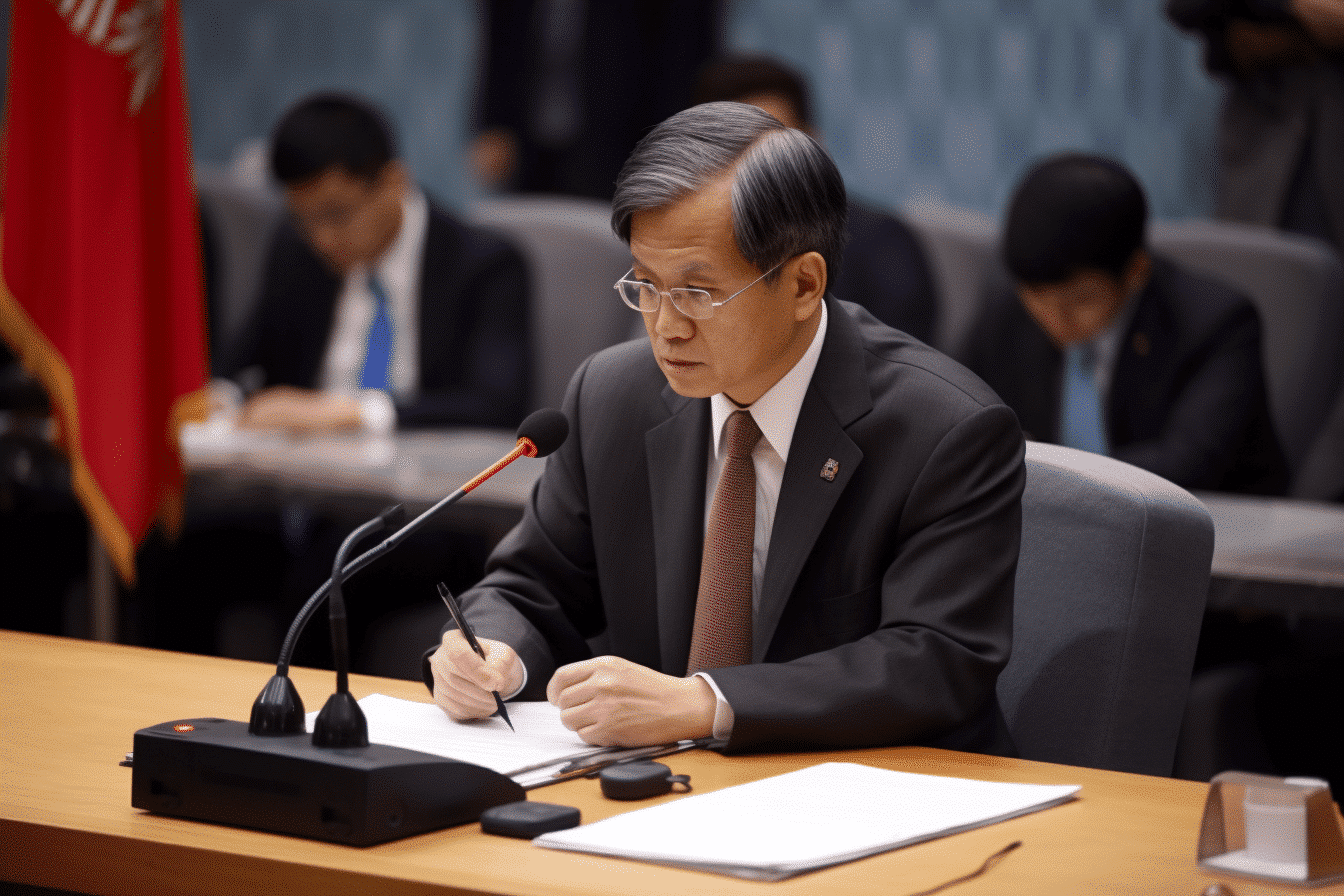The North Korean U.N. ambassador took an uncommon stance in the U.N. Security Council, defending his nation’s recent long-range missile trial and blaming the U.S. for escalating tensions in northeast Asia to the verge of a nuclear conflict.
Ambassador Kim Song argued that the test flight of the developmental Hwasong-18 missile carried out on Wednesday was a legitimate exercise of North Korea’s right to self-defence. He accused the U.S. of heightening regional tensions through nuclear threats and deploying a nuclear-powered submarine to South Korea, a move not seen in the past 14 years.
Kim Song asserted that the missile launch did not compromise the security of any neighbouring country. He cited Japan’s declaration that the Intercontinental Ballistic Missile (ICBM), which took a steep trajectory, descended into open waters beyond Japan’s exclusive economic zone.
South Korean U.N. Ambassador Hwang Joon-kook rebutted, questioning how an ICBM launch could ever make neighbouring nations feel secure.
Kim’s attendance at the Security Council marks the first time a North Korean diplomat has addressed the council since 2017.
Hwang expressed concern that each ballistic missile test North Korea carries out brings it one step closer to its goal of establishing a nuclear-armed weapons arsenal.
Before the meeting, a statement condemning the launch in the “strongest possible terms” was released by nine council members, including the U.S. and Japan, supported by South Korea. The statement emphasized this launch marked the 20th ballistic missile launch this year in flagrant defiance of several Security Council resolutions prohibiting such tests.
In North Korea, Kim Yo Jong, the sister of North Korean leader Kim Jong Un, criticized the U.N. Security Council for provoking a dispute over her country’s act of self-defence while disregarding the U.S.’s push to raise the threat of a nuclear war. She referred to the council as a tool of the U.S. and the West, reminiscent of the Cold War era.
Kim Yo Jong also warned that the U.S. would face repercussions for its antagonistic attitude toward North Korea, hinting at a potential threat without providing further detail but reiterating her nation’s intention to fortify its nuclear deterrence capabilities.
Since North Korea’s first nuclear test explosion in 2006, the Security Council has imposed sanctions and amplified them through 10 resolutions to stifle funding and restrict North Korea’s nuclear and ballistic missile programs. However, these efforts have proven futile thus far.
The council last adopted a sanctions resolution in December 2017. China and Russia vetoed a U.S.-proposed resolution in May 2022 to impose new sanctions following a series of intercontinental ballistic missile launches. Since then, these two permanent members with veto power have hindered any council action, including media statements.
The joint statement from the ten countries emphasized that the Security Council must not stay silent amidst multiple North Korean provocations and should convey to all proliferators that such behaviour is illegal, destabilizing, and will not be accepted. The statement also urged all nations to combat North Korea’s illicit income-generating activities like cybercrime. However, Russia and China remained resistant to any council action.
China’s U.N. Ambassador Zhang Jun acknowledged the latest missile test but criticized the increased U.S. military pressure on North Korea and the deployment of strategic weapons to the Korean Peninsula. He expressed that the long-standing belief of the U.S. and other countries that North Korea is a security threat and their infatuation with sanctions creates “existential pressure” on North Korea. In contrast, the country’s valid concerns have been consistently overlooked.
Zhang emphasized that past experiences from the 1990s clearly show that dialogue and negotiation are the sole ways to alleviate tensions. He thus urged the U.S. and North Korea to resume talks.
The ten countries’ statement conveyed their commitment to diplomacy without preconditions. Ambassador Song did not address this point; talks have been at a standstill since 2018.
In conclusion, the increasing tension between the U.S., North Korea, and other involved parties remains a significant global concern. The urgency for diplomatic resolution is apparent with the recent missile test and consequential debates. Despite the stagnation of talks since 2018, the international community’s hope lies in the potential resumption of constructive dialogue. Only through diplomatic discussions can all parties address their concerns and work toward peace and stability in Northeast Asia.




